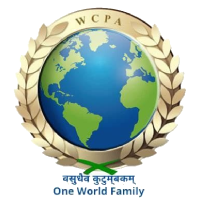WLA 3. Creation Of The World Oceans And Seabeds Authority (in Custody Of The People Of Earth)
Act for the Ownership, Administration and Development of the Oceans and Seabeds of Earth as the Common Heritage of the People of Earth
Short title: Oceans and Seabeds
WHEREAS,
Under Article 16, Section A – (a), of the Earth Constitution, all oceans and seabeds from 20 km. offshore are defined as World Territory;
Several provisions of the recently ratified Law of the Seas treaty among nations are contrary to and in violation of important provisions of Article 16 of the Earth Constitution;
The peace and security of Earth, as well as the environmental health and equitable economic development of Earth, depend in large measure upon the conditions of ownership, administration and development of the oceans and seabeds;
It is essential for actions to be taken in line with Article 16, as well as Article 4, Section 23, before undesirable and difficult obstructions are established to the contrary.
THEREFORE,
- This first session of the provisional World Parliament, convened pursuant to Article 19 of the Earth Constitution, gives notice to all nations and to all people of Earth that the oceans and seabeds from 20 km. offshore from all countries are the Common Heritage of the People of Earth, and are World Territory. The Earth Federation owns, administers and develops all oceans and seabeds as World Territory for the maximum benefit of Humanity.
- The development and exploitation of ocean resources beyond 20 km. offshore is under the jurisdiction, supervision and administration of a World Oceans and Seabeds Authority (WOSA) that the World Parliament or provisional World Parliament establishes, responsible to the World Government under the Earth Constitution.
- Board of DirectorsAny claims by any nation to any Exclusive Economic Zones or to any ownership of oceans or seabeds or the resources thereof beyond 20 km. offshore, are invalid and contrary to the Principle of the Common Heritage of the People of Earth. The Earth Federation does not recognize claims to exclusive economic zones.
- The Commission for Legislative Review or a World Oceans and Seabeds Commission shall study the Law of the Seas Convention to determine provisions that are in violation of the principle of the oceans and seabeds as the common heritage of humanity, or which provisions are unconstitutional or in violation of world legislation, to integrate the previous body of International Law within World Law. Unconstitutional provisions of the Law of the Sea, or provisions in violation of world law, are not binding in World Court.
- The World Oceans and Seabeds Authority shall manage, supervise, directly operate or require world licensing for all development of the mineral, oil, food and other resources of the oceans and seabeds from 20 km. offshore, to insure that all ocean and seabed development inure to the primary benefit of humanity as a whole, rather than to any special or private or national interest.
- In some provisions, the Law of the Sea convention violates the principle of the oceans and seabeds as the common heritage of humanity. Specifically, some provisions of the Law of the Sea convention violate World Legislative Acts Numbers 1, 12 and 13 wherein weapons of mass destruction, such as military submarines, warships, military aircraft carriers, nuclear weapons, fissionable materials, are prohibited from the oceans and seabeds, as well as elsewhere. WMDs, including conveyances of WMDs, are prohibited from transit on or within the oceans (class 1 felony).
- The World Oceans and Seabeds Authority (WOSA) shall develop licensing requirements and require world licenses to be obtained by any shipping company, oil tanker company, fishing company and other companies before using the oceans from 20 km. offshore, including both private and nationally owned companies. To facilitate this licensing system, the WOSA may adopt regulations of the International Seabed Authority and the Law of the Sea that are not inconsistent with the Earth Constitution and world legislation.
- This first session of the provisional World Parliament hereby creates a World Oceans and Seabeds Commission (WOSC) which shall work to prepare the details for a World Oceans and Seabeds Authority, consistent with the terms of this Act and with the provisions of the Earth Constitution. The WOSC shall report back to the subsequent sessions of the provisional World Parliament with specific recommendations, particularly regarding conditional adoption of the Law of the Sea as world legislation, with repeal of unconstitutional provisions or provisions that violate World Law. WOSC shall make recommendations consistent with the Earth Constitution. To assist the integration of the Law of the Sea within world legislation, the recommendations shall include a listing of recommended repeal of original Law of the Sea provisions that are inconsistent with the Earth Constitution or in violation of world legislation. The Steering Committee of the provisional World Parliament shall appoint five members to compose WOSC. The WOSC has authority to co-opt additional members and consultants.
* * * * * * * * * *
Adopted as World Legislative Act Number Three at the first session of the provisional World Parliament, meeting at Brighton, England, 12 September 1982, convened in conformance with Article 19 of the Earth Constitution. Amended at sixth session provisional World Parliament, meeting at Bangkok, Thailand, December 2003. Formatting amendments adopted at eighth session of Parliament, Lucknow, Uttar Pradesh, India, August 2004.
Attested: Dr. Terence P. Amerasinghe, Barrister-at-Law, Secretary (1st & 3rd sessions) Provisional World Parliament
Eugenia Almand, JD, Secretary
Provisional World Parliament

